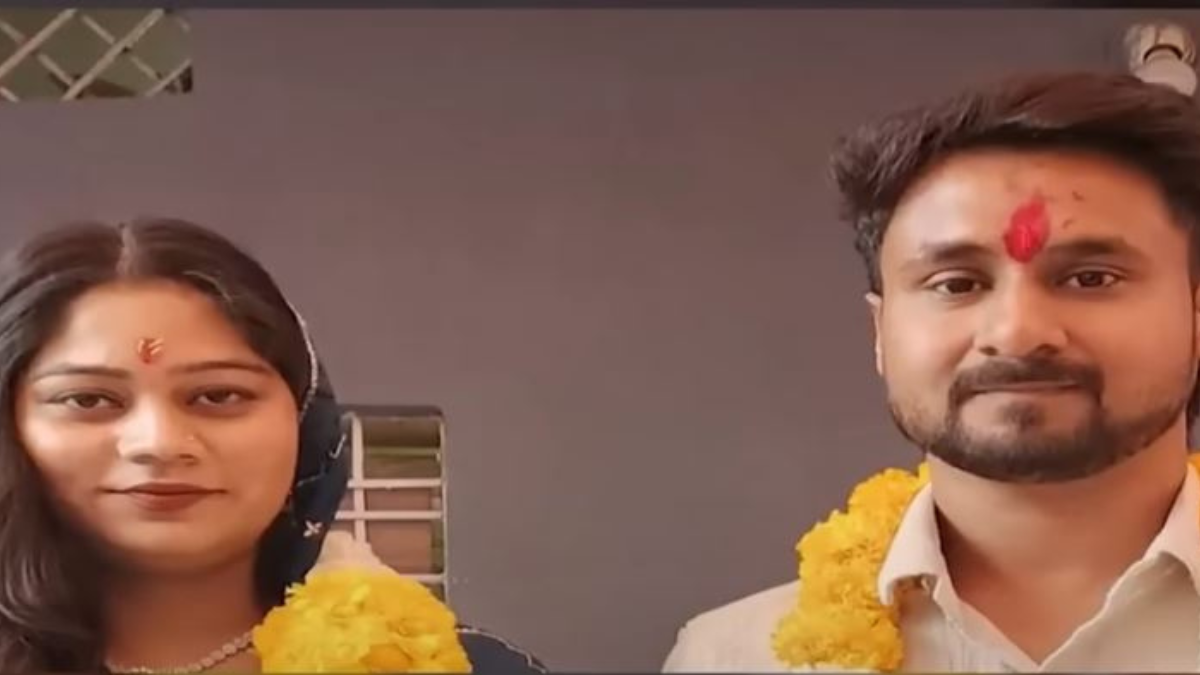The line crackled, heavy with unspoken dread. Sonam Raghuvanshi’s voice, likely strained, trembling, carried a simple terrifying question across the phone line to her in-laws in Indore: “Raja ka phone band kyun hai?” (Why is Raja’s phone switched off?). This seemingly mundane inquiry, ripped from a distressing domestic exchange now forming part of a police investigation, isn’t just a question about connectivity. It’s a stark flare illuminating the dark corridors of alleged matrimonial cruelty, dowry harassment and the suffocating fear that traps countless women within their own homes. The silence emanating from Raja’s phone resonates far louder than any ringtone ever could.
Beyond the Dial Tone: Anatomy of a Distress Signal
Sonam Raghuvanshi reported query isn’t born of casual curiosity. Context is the scalpel dissecting its true meaning. According to reports fueling the Indore case, Sonam endured persistent torment. Allegations paint a grim picture: demands for dowry, escalating into verbal abuse, psychological torture and physical violence. Her existence, confined within the walls of her marital home, reportedly became a relentless siege. The phone call to her in-laws wasn’t social. It was, investigators suggest, a desperate attempt to locate her husband, Raja, amidst this turmoil. His phone being switched off wasn’t an inconvenience; it was a potential disappearance act, severing a lifeline, amplifying isolation, transforming a simple device into a symbol of looming threat. Where was he? What was happening? The unanswered call became a deafening siren of vulnerability.
Digital Shadows: The Evidentiary Weight of a “Switched Off” Status
In the sterile realm of criminal procedure, Sonam Raghuvanshi frantic question morphs into potent evidence. Investigators meticulously dissect call logs. They scrutinize patterns. A spouse’s phone deliberately powered down during a period of alleged intense conflict? This isn’t mere happenstance. It suggests calculation. An attempt to evade contact? To create an alibi? To intensify the victim’s helplessness? The timing, juxtaposed with Sonam Raghuvanshi specific allegations of ongoing abuse, casts the “switched off” status in a profoundly sinister light. It becomes a digital footprint pointing towards consciousness of guilt an effort to control the narrative, or to inflict psychological torture through enforced silence and uncertainty. The absence of a signal becomes a loud, accusatory presence in the case file.
Indore: A Microcosm of a National Scourge
Tragically, Sonam Raghuvanshi ordeal is not an Indore anomaly. It’s a horrifyingly common refrain across India’s vast, complex social landscape. Dowry harassment (IPC 498A), domestic violence (Protection of Women from Domestic Violence Act), and cruelty by husband or relatives remain endemic poisons. The National Crime Records Bureau (NCRB) data offers cold, numerical validation of the screams often muffled behind closed doors. Thousands of cases. Every year. Sonam Raghuvanshi voice, captured in that fraught question, embodies the terrifying reality for innumerable women who find their marital homes transformed into battlegrounds, where love is perverted into leverage and safety is a forgotten luxury. Her specific query about a phone lays bare the insidious methods of control: isolation, information blackout the strategic severing of connections.
The Fortress of Complicity: When In-Laws Become Enablers
The direction of Sonam’s call – to her in-laws – adds another corrosive layer. It starkly highlights the alleged ecosystem of abuse. Her plea wasn’t to a neutral party, but to those accused alongside Raja of perpetuating her torment. Reports suggest the harassment wasn’t Raja’s solo act, but a family enterprise. Demands for cash, a car classic dowry pressure points reportedly flowed from multiple voices within the household. Sonam Raghuvanshi asking them about Raja’s phone underscores her entrapment. Who else could she turn to within that structure? It speaks to a terrifying environment where potential protectors are the perpetrators, where the very architecture of familial support crumbles into an instrument of persecution. The question, directed at them, is a devastating indictment of their alleged complicity.
Echoes Beyond Indore: Breaking the Silence
Sonam Raghuvanshi’s courage in reporting the abuse, in enduring the legal process, and even in that single, panic-laced question captured on a call, is monumental. “Raja ka phone band kyun hai?” It’s more than words. It’s a distress beacon piercing the normalized facade of domestic harmony. It’s a challenge to societal apathy. It demands we listen not just to the words, but to the chilling silence they seek to penetrate.
Her case underscores non-negotiable imperatives:
- Believe Survivors: The instinct to disbelieve or minimize must be eradicated. Initial disclosures are critical.
- Swift, Sensitive Response: Law enforcement and judicial systems must act with urgency and deep understanding of trauma dynamics. Delays kill.
- Community Vigilance: Neighbors, relatives, friends – silence equals complicity. Recognizing signs and offering support channels is vital.
- Eradicating Dowry: This archaic, illegal practice remains the toxic root. Social transformation, alongside strict legal enforcement, is essential.
The switched-off phone in Indore symbolizes the barriers abusers erect. Sonam’s question is the hammer trying to shatter it. Her story, still unfolding, is a stark reminder that behind statistics are human beings gasping for air, for connection, for justice. The silence from Raja’s phone must not become the silence of society. We must amplify Sonam’s question until every home is safe and no woman ever again has to ask, with trembling voice, why her tormentor cannot be reached. The echo must become a roar for change. The cost of silence is measured in shattered lives. Let Indore be a catalyst, not just another case number.
